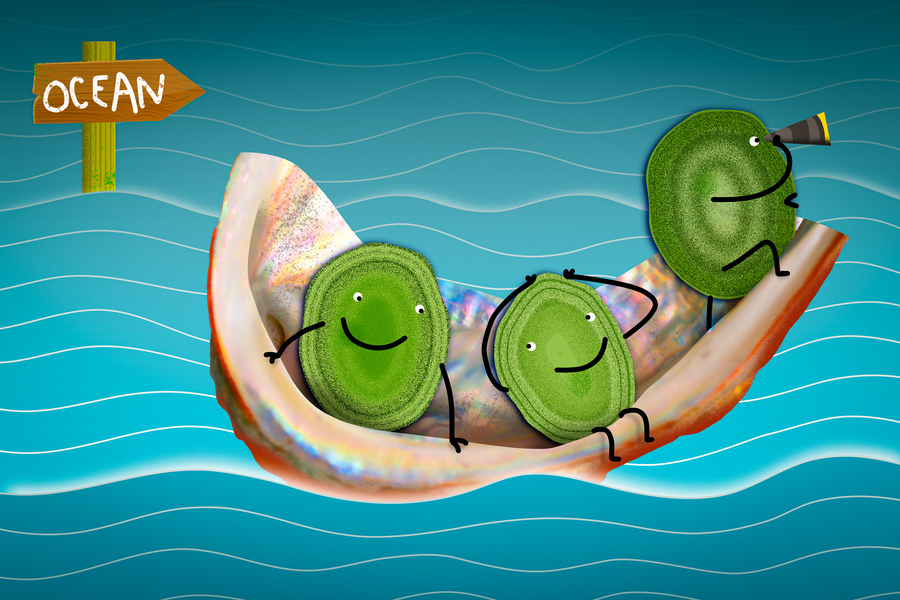Billions of phytoplankton use Earth's sunlight to absorb carbon dioxide from our atmosphere. In the article written by the
Massachusetts Institute of Technology, they give insight into the genetic evolution of our sun-loving little friends.
Prochlorococcus is one of the most abundant free-floating plankton in our oceans today. Ancestors never were out in the great open, they resided near coastlines where food and resources were plentiful. Much like boats, these ancestor plankton anchored themselves to small pieces of chitin floating throughout the water and out to sea. The chitin provided all that they needed, but once far out in the ocean these little friends developed into the free-floating phytoplankton we know today. Without this evolutionary change, our planet would not be the same as we know it. They completely changed the earth's biosphere. This is because these
prochlorococcus can go through photosynthesis in areas with little light and can mix other carbon-capturing strategies. When researchers were studying these traits, they came across several genes that allowed the phytoplankton to break down chitin. This carbon-rich material comes from breaking down the shells of the arthropods they carried on.
I enjoyed this article because it was written for a reader with a limited understanding of the topic originally. We usually do not think about things we can't see, especially things that many do not know exist. Phytoplankton are known to absorb the same amount of carbon that terrestrial forests do. These small, microscopic green friends shape our world not by absorbing carbon, but because they are a main part of the aquatic food web. They produce more than half the oxygen we breathe. Remember this next time you swim in the ocean!
Sources:
McCullough D. 2019 Aug 8. Plankton: Small Organisms with a Big Role in the Ocean - Ocean Conservancy. Ocean Conservancy. https://oceanconservancy.org/blog/2019/08/09/plankton-small-organism-big-role/.
Chu J. 2023 May 11. Like ancient mariners, ancestors of Prochlorococcus microbes rode out to sea on exoskeleton particles. MIT News | Massachusetts Institute of Technology. [accessed 2024 Feb 26]. https://news.mit.edu/2023/ancestors-prochlorococcus-microbes-chitin-0511.

I love this article! The concept of transitional periods in an organism, and how critical to our modern-day biosphere these phytoplankton were/are, is so fascinating to me. I love studying evolutionary paths, so this article really intrigued me. Not to mention, I also love the cartoon graphic provided of the adventurous phytoplankton!
ReplyDelete